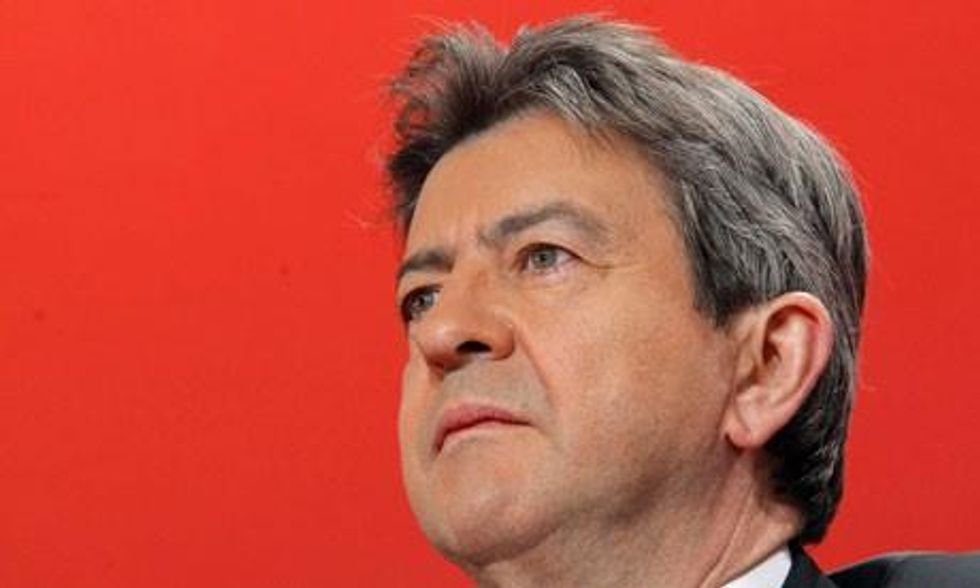France's conservative president, Nicholas Sarkozy, ran for office in 2007 on a programme of making the French economy more like that of the United States. He picked a bad time for that: the US was on the brink of its worst recession since the Great Depression, and would help drag down Europe and much of the world economy as the American economy collapsed. He probably wouldn't want to say these things today, after the US has had four years with hardly any economic growth at all.
But Sarkozy did succeed in making the French economy more like the US in some ways. After being one of the few high-income countries that didn't have an increase in inequality from the mid-1980s to the mid-2000s, France has become more unequal since Sarkozy was elected. For example, the ratio of the income of people in the 99th percentile (near the top) to the first percentile (at the bottom) went from 11.8 to 16.2. Other measures of inequality have also increased significantly (the Gini coefficient rose from 26.6 to 29.9). This happened from 2007 to 2010; it is probably worse today. By raising the retirement age - a wholly unnecessary change that drew enormous opposition and protests - Sarkozy also helped to make France even more unequal.
The comparison between France and the US is a good one, because the two countries have about the same level of productivity, or output per hour. This means that they have the economic capacity to enjoy about the same living standards. The French have chosen to take their productivity gains in the form of shorter work hours, longer vacations, universal healthcare, free college education and childcare, and a more equal distribution on income. By contrast, in the US more than 60% of the income gains of the past three decades have gone to the richest 1%. Poverty is now back to the rates of the late 1960s; college tuition costs have soared, we have no legally mandated paid holidays or vacations, and 52 million Americans remain without health insurance (although this could be reduced in the coming years, depending partly on the supreme court).
Most French citizens like their economic security and shared prosperity. So it may seem odd that someone with Sarkozy's programme could have been elected in the first place, and have a chance to win re-election. But this is largely due to popular misunderstanding of the most important economic issues, aided and abetted by flawed media coverage. As in 2007, the conventional wisdom is that France is living beyond its means, and Sarkozy now warns that France could be the next Greece and face economic meltdown if he is not re-elected. He pledges to balance France's national budget by 2016.
Unfortunately his Socialist party rival, Francois Hollande, pledges to balance the budget by 2017. Of course there are some important differences between the two, but if either candidate were to implement a fiscal austerity programme of this magnitude while the French and European economies are this weak, it is almost certain that unemployment and other economic and social problems will worsen. And France will lose some its important economic and social achievements.
Fortunately France has a more progressive alternative: Jean-Luc Melenchon, backed by the Left Front. He seems to be the only one in the race that understands the real economic choices faced by France and the eurozone. France does not need austerity - that would be its best chance of actually ending up like Greece. Melenchon proposes instead that the European Central Bank do its job and make loans to France and other European governments at 1%, as it does for the banks. France's interest burden on its debt is already quite reasonable, at about 2.4% of GDP; so if it can keep borrowing costs low it can grow its way out of its current problems, creating employment and increasing incomes in the process. That is sensible macroeconomic policy.
Melenchon also wants to reduce work hours and raise the minimum wage, and increase taxes on the rich. He rejects the balanced-budget nonsense - as even most economists in the US do - and also the European Central Bank's lack of commitment to full employment. This also makes economic sense, especially in a time of recession when the ECB can create money (the US Federal Reserve has created $2.3tr since 2008) without fear of excess inflation.
In the French elections, the top two finishers go to a second round if, as appears likely, neither gets a majority in the first round on 22 April. Melenchon is currently polling about 15% of the vote, but would probably be even higher if not for the fear that he could push the Socialist party out of the second round of the election. That happened in 2002, when the far-right, anti-immigrant candidate took second place. But there is no significant chance of a repeat this year; Marine Le Pen is polling at just 13%. So it would seem that anyone who wants to preserve French living standards and way of life should cast their vote for Melenchon.
Compared with the US, it is much easier for a third party candidate in France to have a significant influence even without winning. Hollande has already moved left to capture the Left Front's voters, and Melenchon will have the bargaining chip of his endorsement for the second round. With the two big parties committed to economic policies that will lower French living standards for the majority - in 2007 it was just Sarkozy who made this commitment - it's hard to think of a more appropriate time to vote "outside the box".

